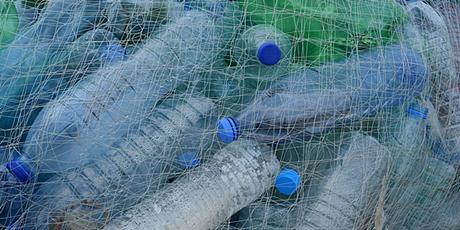The Environment, Food and Rural Affairs Committee has expressed surprise and disappointment after the government disagreed with key recommendations in its report on dealing with the growing problem of plastic waste.
The cross-party MPs’ parliamentary scrutiny body conducted an extensive inquiry beginning in July 2021. The headline recommendation of its report, published in November 2022, called for a ban on the export of all plastic waste – a large amount of which ends up being illegally dumped – by the end of 2027.
The Committee heard that the UK is highly reliant on plastic waste exports, sending around 60% of the plastic waste it generates abroad for processing. It took evidence of alarming accounts of some British plastic waste being dumped and burned in Turkey, causing “irreversible and shocking” environmental and human health impacts.
However, the government response to the report, published today, disagreed with the recommended ban on the export of plastic waste, saying legitimate exports have a role in the management of UK waste. This was despite the fact that even the government-commissioned Independent Review of Net-Zero recently made a similar recommendation.
While the government reiterated its intention to ban plastic waste exports to non-OECD countries, such destinations only accounted for 20% of all UK exports in 2020 and this figure looks set to shrink yet further in any case, as the Committee’s report pointed out.
The Committee said its recommendation to stop exporting plastic waste would encourage the development of a larger recycling industry in the UK, which would create jobs and boost the economy as well as being better for the environment.
The Committee’s report made recommendations across the whole plastic supply chain – including calling for tougher targets and a better focus on reduction and reuse of plastics – most of which have been rejected by the government.
This included the government rejecting our call for it to make more plastic packaging producers pay for the cost of waste disposal (instead of, currently, the main burden falling on local authorities).
Under current proposals known as ‘extended producer responsibility’, or EPR, businesses that produce less than 50 tonnes of plastic packaging will be exempt from charges. The Committee had recommended that this threshold should extend down to companies producing over 1 tonne of plastic packaging.
The government said this would place too much of a burden on small producers, despite the Committee recommending that this should not be put in place until 2030, so allowing smaller enterprises time to adapt.
The Chair of the Environment, Food and Rural Affairs Committee, Sir Robert Goodwill MP, said:
“It’s a shame the government has turned down recommendations from the Committee’s long running and carefully considered inquiry.
Plastic waste is one of the major environmental issues of our age – as a visit to many beaches or inland beauty spots will show. But what’s good for our environment could also have been good for the economy as well. Our recommendation to ban plastic waste exports by 2027 was partly aimed to help develop a multimillion-pound plastic waste recycling industry in the UK, supporting hundreds of jobs.
We will be watching carefully to see if the government reaches its stated – but I’m afraid rather vague – ambition to eliminate what it calls ‘avoidable’ plastic waste by 2042 and make producers more responsible for the plastics they use. We acknowledge there are already some reforms in these areas – now we need to monitor their impact and see whether they properly tackle the problem of plastic waste”.







